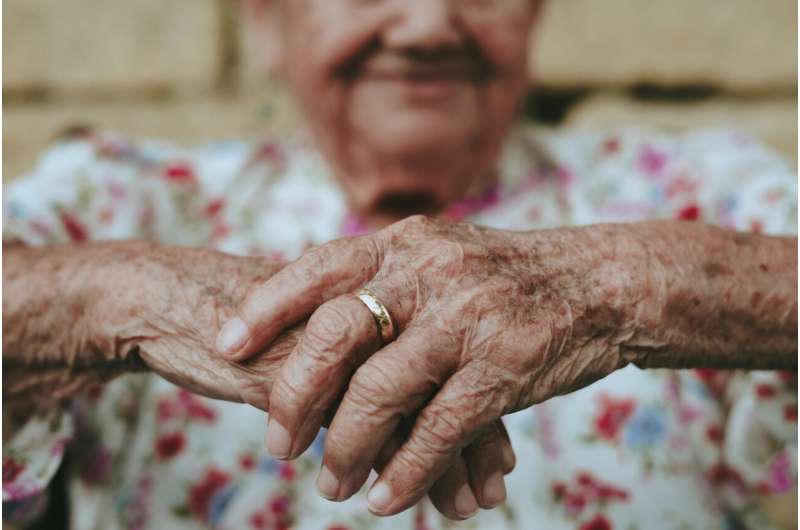This article has been reviewed according to Science X's editorial process and policies. Editors have highlighted the following attributes while ensuring the content's credibility:
fact-checked
peer-reviewed publication
trusted source
proofread
Inherited genes play a larger role in melanoma risk than previously believed

When it comes to skin cancer, most people think of warnings about sunburn and tanning beds. Thoughts of "cancer genes" or inherited risks are reserved for diseases like breast cancer or colon cancer. A new study challenges this status quo by showing that genetics play a larger role in melanoma risk than recognized.
Physicians rarely order genetic screens to assess risk factors for patients with a family history of melanoma, because according to the previous limited studies, only 2–2.5% of all cases are genetic. For the same reason, insurance companies rarely cover these tests outside of the most extreme situations. In the medical field, genetic testing is generally not offered for cancers that don't meet a threshold of 5%.
A study from researchers and clinicians led by Cleveland Clinic's Joshua Arbesman, MD, and Stanford Medicine's Pauline Funchain, MD (formerly Cleveland Clinic), suggests that melanoma more than meets that threshold. Their results, published in the Journal of the American Academy of Dermatology, report that up to 15% (1 in 7) of patients who received melanoma diagnoses from Cleveland Clinic physicians between 2017 and 2020 carried mutations in cancer susceptibility genes. The research team, which includes Cleveland Clinic Center for Immunotherapy and Precision Oncology's Ying Ni, Ph.D., and Claudia Marcela Diaz, Ph.D., analyzed international patient databases and found similar results.
"Hereditary cancers can wreak havoc through families and leave devastation in their wake. Genetic testing lets us proactively identify, screen and even treat these families to equip them with the tools they need to get the best health care possible," says Dr. Arbesman. "I would recommend physicians and insurance companies expand their criteria when it comes to offering genetic testing to individuals with family histories of melanoma, because inherited predisposition to it isn't nearly as rare as we think it is."
Dr. Arbesman, who runs a lab in Cleveland Clinic Lerner Research Institute's Cancer Biology, also says his findings support an increasingly popular opinion among cancer biologists: There are risk factors beyond sun exposure that can influence an individual's chances of developing melanoma.
"Not all of my patients had inherited mutations that made them more susceptible to the sun," he says. "There's clearly something more going on here and more research is needed."
Dr. Arbesman and his team are studying many of the genes that came up in his patients' genetic tests to learn more about how melanoma develops and how it can be treated. For example, he is working to determine if some of his patients and their families who show inherited mutations may benefit more from immunotherapy compared to those who don't carry inherited mutations. His lab is also working to determine how other patients' genes contributed to the development and the severity of their melanoma.
More information: Pauline Funchain et al, Germline cancer susceptibility in individuals with melanoma, Journal of the American Academy of Dermatology (2024). DOI: 10.1016/j.jaad.2023.11.070





















